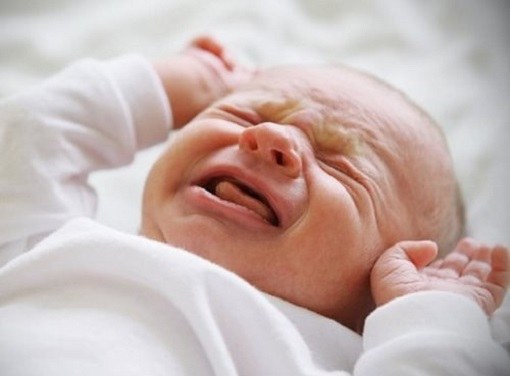In the first weeks of his life the child is missing a small amount of milk, which his digestive tract to cope without outside help. But as they grow older, require more food, which leads to flatulence in little tummies. So there is colic – paroxysmal pain in the colon.
Cramps usually come in the evening. After feeding the baby begins to scream hysterically, running out feet, blushing. As young parents go crazy from impotence and pity. "Wait, three months will pass by itself, is often, but not comforting advice.
As hard as you may, first, calm down. The child feels your anxiety and irritability and this even more nervous. He must be sure that you will help him, and all will be well.
If breast-feeding, check for the correct applying of the kid to his chest, he must grasp the nipple together with the areola, and lower lip to be a little twisted. After feeding hold the baby upright, clutching him to her and slightly pushing on the abdomen, it will help to the best carminative.
Check your diet, eliminate foods that increase gas production: milk, legumes, cabbage, grapes. A large amount of sweet can also cause fermentation, leading to bouts of pain.
At artificial feeding try to change the mixture and dopisivati child some water. The consistency of the mixture is different from mother's milk, and water promotes better digestion.
To relieve the acute pain apply heat to the tummy. This can be a heating pad or hot ironed cloth, folded in several layers. Massage with fingertips in a circular motion clockwise, and then bend both legs at the knees, pressing slightly and pushing on the abdomen.
An excellent prevention of colic is the reupload on the tummy. This is done in an hour or two after feeding, stimulating the discharge of gases and easing pain. Swimming in the tub by working the abdominal muscles will also help to relieve pain and soothe baby.
In the most extreme cases when all the above methods do not help, you can put the vapor tube.
Syrups, teas, and drops will help to cope with the pain almost immediately, but before applying you should consult with your doctor.
Colic is not a disease, it's just a fixture of the gastrointestinal tract to the new conditions, food, environment. Be patient, the more you are nervous, the harder it is to calm the baby.
Cramps usually come in the evening. After feeding the baby begins to scream hysterically, running out feet, blushing. As young parents go crazy from impotence and pity. "Wait, three months will pass by itself, is often, but not comforting advice.
How to help your child
As hard as you may, first, calm down. The child feels your anxiety and irritability and this even more nervous. He must be sure that you will help him, and all will be well.
If breast-feeding, check for the correct applying of the kid to his chest, he must grasp the nipple together with the areola, and lower lip to be a little twisted. After feeding hold the baby upright, clutching him to her and slightly pushing on the abdomen, it will help to the best carminative.
Check your diet, eliminate foods that increase gas production: milk, legumes, cabbage, grapes. A large amount of sweet can also cause fermentation, leading to bouts of pain.
At artificial feeding try to change the mixture and dopisivati child some water. The consistency of the mixture is different from mother's milk, and water promotes better digestion.
To relieve the acute pain apply heat to the tummy. This can be a heating pad or hot ironed cloth, folded in several layers. Massage with fingertips in a circular motion clockwise, and then bend both legs at the knees, pressing slightly and pushing on the abdomen.
An excellent prevention of colic is the reupload on the tummy. This is done in an hour or two after feeding, stimulating the discharge of gases and easing pain. Swimming in the tub by working the abdominal muscles will also help to relieve pain and soothe baby.
If all else fails
In the most extreme cases when all the above methods do not help, you can put the vapor tube.
Syrups, teas, and drops will help to cope with the pain almost immediately, but before applying you should consult with your doctor.
Colic is not a disease, it's just a fixture of the gastrointestinal tract to the new conditions, food, environment. Be patient, the more you are nervous, the harder it is to calm the baby.
